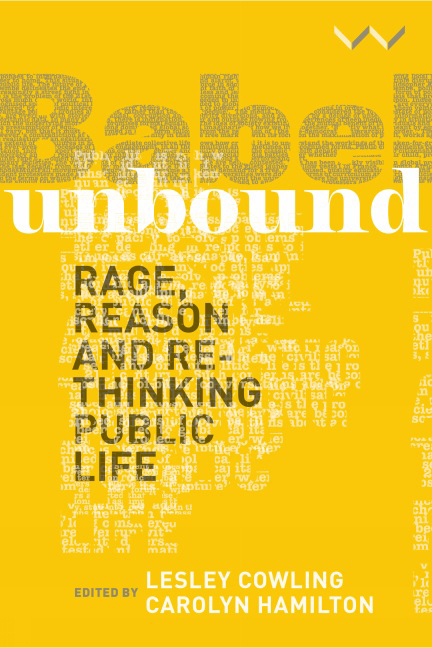Book contents
- Frontmatter
- Contents
- Acknowledgements
- Introduction
- Chapter 1 Rethinking Public Engagement
- Chapter 2 Tracing Public Engagements in Visual Forms
- Chapter 3 Media Orchestration in the Production of Public Debate
- Chapter 4 Fluid Publics: The public-making power of hashtags in digital public spaces
- Chapter 5 ‘Now We See Him, Now We Don’t’: The media and the ‘Black Pimpernel’
- Chapter 6 Archive and Public Life
- Chapter 7 Iconic Archive: Timbuktu and its manuscripts in public discourse
- Chapter 8 The Politics of Representation in Marikana: A tale of competing ideologies
- Chapter 9 Art-Rage and the Politics of Reconciliation
- Chapter 10 Anger, Pain, and the Body in the Public Sphere
- Contributors
- Index
Chapter 1 - Rethinking Public Engagement
Published online by Cambridge University Press: 10 September 2020
- Frontmatter
- Contents
- Acknowledgements
- Introduction
- Chapter 1 Rethinking Public Engagement
- Chapter 2 Tracing Public Engagements in Visual Forms
- Chapter 3 Media Orchestration in the Production of Public Debate
- Chapter 4 Fluid Publics: The public-making power of hashtags in digital public spaces
- Chapter 5 ‘Now We See Him, Now We Don’t’: The media and the ‘Black Pimpernel’
- Chapter 6 Archive and Public Life
- Chapter 7 Iconic Archive: Timbuktu and its manuscripts in public discourse
- Chapter 8 The Politics of Representation in Marikana: A tale of competing ideologies
- Chapter 9 Art-Rage and the Politics of Reconciliation
- Chapter 10 Anger, Pain, and the Body in the Public Sphere
- Contributors
- Index
Summary
In 2002 Charles Taylor identified the public sphere as one of three social imaginaries that constitute modernity. The idea of the public sphere, he argued, knits together discussions in a range of locations – a newspaper report, a discussion in a coffee shop, a radio debate – through the understanding of the participants that they are involved in a greater, collective discussion. Discussion in a notional public sphere is seen as a key process through which a society can mediate collective life.
Such public engagement is the focus of this book. However, we approach the public sphere not as a theory about how public deliberation takes place, but as an established, normative concept and ideal in society, a value-laden organising principle: how people imagine public debate works, thus shaping ‘actual’ discussion. The notion of the public sphere is closely tied to ideas of democratic practice – in particular, the conception of deliberative democracy, which ‘revolves around the idea that … problems concerning the organization of life in common can be resolved through the force of the better argument: through people coming together and deliberating upon the best way to resolve particular disputes’. Seen in that way, public engagement is more than the cut and thrust of myriad interactions in society; it is crucial to the operations of democracy.
This leads us to ask, in the first section of this chapter, what work the idea of the public sphere and related notions (public, public opinion and counterpublic) do in the world. Approaching the public sphere as an idea that animates social processes and institutions allows us to flag some of the forums that, taken together, present as if they are a unitary public space for discussion. They perform a sort of front-of-stage set of public engagements that appear to fulfil the ideal of the public sphere and, indeed, important debates happen in these forums with consequences for society. However, how these debates happen is subject to all sorts of constraints. We set out the ways in which this assemblage of public engagements – what we have called the ‘convened public sphere’ – is shaped in particular ways by the operations of power.
- Type
- Chapter
- Information
- Babel UnboundRage, Reason and Rethinking Public Life, pp. 21 - 39Publisher: Wits University PressPrint publication year: 2020

